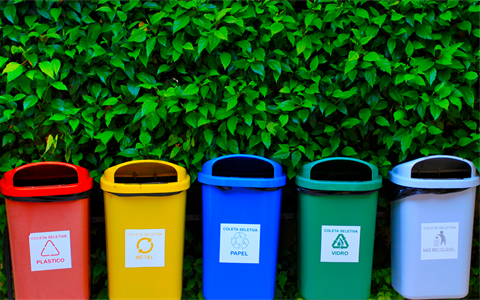Waste

Often the biggest barrier to sustainability for many business owners is “where do I start”. Sustainability can sometimes feel overwhelming, but it doesn’t need to be. 6 degrees hosted Sustainability is Possible – ‘Small Green Steps’ on May 26 2022 to help businesses discover the‘Small Green Steps’ needed to start (or boost) their sustainable business journey.
Participants were encouraged to ask questions to better understand how to reduce business waste, improve energy efficiencies or save money through sustainability. The 6 degrees team captured what was said at the event which includes the following.
Plastic Waste
Q. Bang for buck, what’s the best ‘small green step’ a business can take to make a real difference?
For retailers, stop giving things away for free! Do your customers really need a straw, do they really need cutlery or a bag? Introduce reusable products – reusable bags and cups.
Q. Do plastic-free coffee cups exist?
Yes but be careful of greenwashing! Most takeaway coffee cups contain plastic or bioplastics. Because many companies are promoting them as recyclables, a huge volume of cups end up in yellow recycling bins, contaminating the rest of the recyclables.
Q. How do we recycle soft plastics?
Soft plastics like shopping bags, packets and plastic wrap cannot be recycled in your yellow lidded bin. Unfortunately there are no local solutions to recycling soft plastics but we can do our bit in reducing the amount we use. Try avoiding unnecessary and single-use plastics, support businesses who are reducing plastic waste and re-use existing plastic. Households can recycle soft plastics by taking them to a RedCycle drop-off point. These can be found at local Coles and Woolworths supermarkets.
Q. Plastic bags will be banned from June 1… what other plastic products will be banned and when?
The NSW ban includes:
- Banned from 1 June: lightweight plastic shopping bags with handles which are 35 microns or less.
- Banned from 1 November: single-use plastic straws, cutlery, stirrers, plates, unlidded bowls, EPS food containers. Some exemptions will apply.
Q. Are there any resources out there to help educate our customers about the up-coming plastic bans?
Yes, the NSW Government website has many resources available for retailers, suppliers and not-for-profit organisations including posters, counter cards, guides and supplier advice.
Other Waste
What happens to my recycling here in Coffs Harbour?
General waste is sorted locally in Coffs Harbour. A significant amount of business waste is recyclable. It is estimated that up to 90% of business waste is recyclable, with the majority consisting of paper and cardboard followed by co-mingled recyclables and organic waste. You can achieve significant savings in waste costs through correct recycling. Roughly 10% of all recyclable materials are sent to landfill due to contamination.
Q. Are there any coffee cup recycling options in Coffs Harbour?
Disposable cups can only be placed in red bins. This includes all cups marked biodegradable or compostable. Biodegradable and compostable coffee cups are a more responsible purchase but they cannot go into your green or yellow bin. Most disposable coffee cups are lined with plastic polyethylene and therefore cannot be recycled or composted. Cup lids are usually made from High Impact Polystyrene (HIPS). HIPS carries the plastics identification code #6 and is recyclable if it is separated and sent to a separate plastics collection system.
Bringing your own reusable cup is the best way to reduce coffee cup waste. Around one billion disposable coffee cups end up in Australian landfill every year. In landfill, the cardboard fibre of the cup releases methane, a potent greenhouse gas.
Q. As a business, how can I save on my waste services?
Once you’ve got an understanding of your business waste, the ‘3 Rs’ (Reduce, Reuse & Recycle) can help you to manage your waste better. Here are some tips to help your business to reduce, reuse and recycle waste materials.
- Introduce a waste reduction program – involve your staff by appointing a waste management coordinator to establish a waste reduction program and identify local recyclers.
- Separate the different types of waste – it’s important to know what rubbish your business can recycle or reuse. Have separate bins for different types of waste.
- Review your products – consider the cost of disposing of materials compared to the cost of producing or buying them. Could your business use less packaging material, or better still, reuse or recycle?
- Buy green – talk to your suppliers about using environmentally friendly products, materials or services.
Reducing your business waste can be good for business.
Additional information, links, organisations and toolkits
Bye Bye Plastic – the time has come to say bye-bye to single use plastics. Get ready!
MidWaste - providing information, advice and resources to reduce the amount of food you throw away in your business.
War on Waste Toolkit for Business - essential tips and tools that can get your business reducing waste, saving money and improving staff morale.
Jasper Coffee, No More Plastic & Green Caffeen - plastic-free coffee cup solutions.
RedCycle - makes it easy for consumers to keep plastic bags and packaging out of landfill.
National Retail Association - single-use plastic bans explained.
NSW Government (single-use plastic bans) - resources for retailers, suppliers and not-for-profit organisations.
Handybin Services - Coffs Coast recycling information.
Coffs Coast Waste Services - biodegradable and compostable cup information.